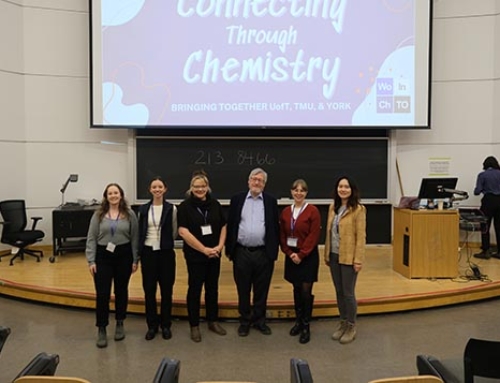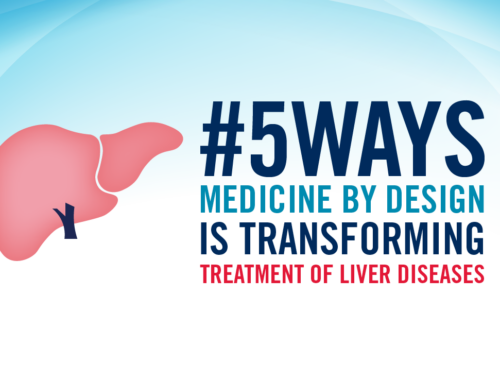
Thomas Digby (left), intellectual property attorney, and Rafi Hofstein (right), former CEO of Toronto Innovation Acceleration Partners (TIAP), are now advisors in Medicine by Design’s Entrepreneur-in-Residence program.
The Medicine by Design Entrepreneur-in-Residence (EIR) program launched late last year to support Medicine by Design-funded researchers as they translate their research into new regenerative medicine therapies and companies.
Now, Medicine by Design is strengthening the program with the recent appointment of two advisors who bring decades of experience to their roles.
“We’re thrilled to welcome Rafi Hofstein and Thomas Digby as advisors to our program, two individuals with many years of experience and success in the life sciences company creation realm,” says Allison Brown, director, strategy & translation, at Medicine by Design, University of Toronto (U of T). “The calibre of expertise we’re bringing into the program will mean that Medicine by Design-funded researchers will have enhanced support in translating their transformative research into early-stage product development and company creation to have a real impact on human health.”
The EIR program provides Medicine by Design-funded research teams at the U of T and its affiliated hospitals with critical business planning, entrepreneurial advice, product development expertise and connections to cell and gene therapy industry leaders and the venture capital community. In particular, it supports Medicine by Design’s investigators funded through the Pivotal Experiment Fund, which is Medicine by Design’s funding program intended to advance translation of Medicine by Design’s team projects portfolio.
Rafi Hofstein joins as advisor on early-stage venture creation
Hofstein, who recently retired from his position as president and CEO at Toronto Innovation Acceleration Partners (TIAP), brings to the role deep expertise in the commercialization of life sciences innovations emerging from academia.
“The space between making an academic discovery and being able to get it to clinical use is often called the “valley of death,” because it can be very challenging to get past the early-stage in Canada,” says Hofstein. “The EIR program, in conjunction with Medicine by Design’s Pivotal Experiment Fund, will have an impact in launching companies out of the Medicine by Design community.”
Hofstein, who has a PhD in life sciences and chemistry, describes himself as a serial entrepreneur, starting more than 60 companies over the span of 40 years including Scopus, BioLine Rx and Fibrocor Therapeutics. He has worked in the U.S. and Israel and came to Canada 13 years ago to take on the role at TIAP, which was then known as MaRS Innovation.
After retiring from TIAP, Hofstein has continued to contribute to the bioinnovation community as a consultant, and the early stage EIR advisory position gives him the opportunity to use his experience to help establish new companies out of Medicine by Design’s foundational research.
“In the academic arena, researchers have a handle on things, and they do them really well,” says Hofstein. “But things can become more challenging when they ask, ‘How can my science be useful?’ Translating the research can be challenging, especially in Canada. EIR is a strategic program that will help ensure more projects move up the value chain and are able to attract capital.”
Thomas Digby joins as advisor on intellectual property
Digby, an intellectual property (IP) and transaction attorney, brings his almost 30 years of experience working with early-stage biotech startups to the EIR program.
Among other roles, Digby is an attorney and founder at Digby Global, Global IP Asset Management. He worked at Novartis for more than a decade, where he specialized in IP Asset Management and currently works with biotechnology companies, including cell and gene therapy companies across North America.
“Investors want to be sure that the product can’t be copied by a third party,” Digby says. “I help company creators through both the patent process and regulatory planning so they can find a path to market.”
Digby says that Medicine by Design’s EIR program is an asset to the biotechnology industry in Canada, which is currently experiencing exponential growth in life sciences.
“Historically, Canada has always had deep talent in the life sciences, but the development of a local, scaleable industry has been more challenging. In recent years, though, we’ve seen a wave of development. The EIR program can bring focus and energy to Medicine by Design’s researchers to seize on this wave.”
As advisors, both Hofstein and Digby will work alongside the current EIR Andrew Haller, further bolstering the program with sector-specific expertise.
About Medicine by Design
Funded by a $114-million grant from the Canada First Research Excellence Fund, Medicine by Design brings together more than 150 principal investigators at the University of Toronto and its affiliated hospitals to advance regenerative medicine discoveries and accelerate them toward impact. It builds on decades of made-in-Canada excellence in regenerative medicine dating back to the discovery of stem cells in the early 1960s by Toronto researchers James Till and Dr. Ernest McCulloch.






